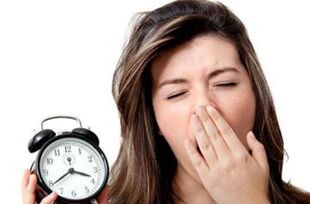研究发现 睡得越少的人寿命越短
|
In an interview with the Guardian, Professor Matthew Walker, director of the Centre for Human Sleep Science at the University of California, Berkeley, said that sleep deprivation affects "every aspect of our biology". Through his work, he's determined that people who don't get enough sleep tend to be less healthy and have lower energy levels than those who get the recommended amount of shut eye per night. After analyzing the results of 20 separate studies, he's found a strong correlation between how much people sleep and how long they live. In summary: The less you sleep, the shorter your life will be.
This is a problem, particularly because many of us are conditioned to equate sleep with laziness. "We want to seem busy, and one way we express that is by proclaiming how little sleep we're getting," he told The Guardian. "It's a badge of honor." When he gives talks, he says people will wait until afterwards to whisper to them that they need eight or nine hours of sleep at night, similar to how someone might confess a crime. But they shouldn't -- they're the ones making the healthier choice. In one study, for instance, adults age 45 and older that slept less than 6 hours each night were 200% more likely to have a heart attack or stroke during their lifetime compared to participants who got 7 or 8 hours. In other studies, sleeping less has been associated with an increased risk of weight gain, developing Alzheimers, and relapses in addition disorders. On a basic level, lack of sleep also lowered participants' immune systems. Walker's suggestion for people: Avoid pulling all-nighters. After you've been awake for 19 hours you're essentially as cognitively impaired as a drunk person. Also, think of sleep like a job. Just like going to the gym, you need to make sure you go to bed. |









